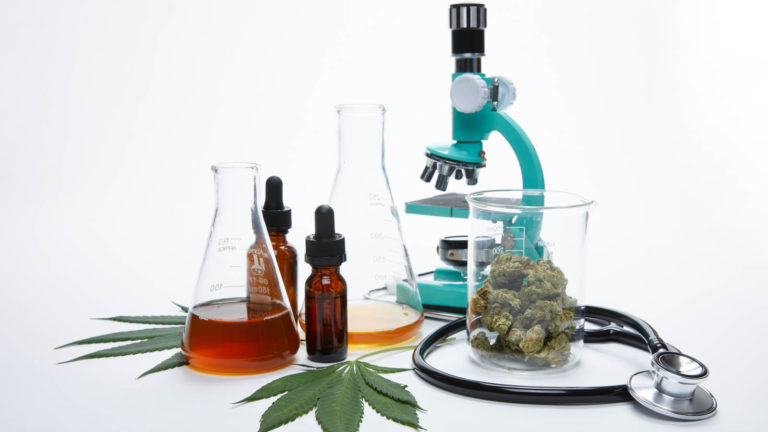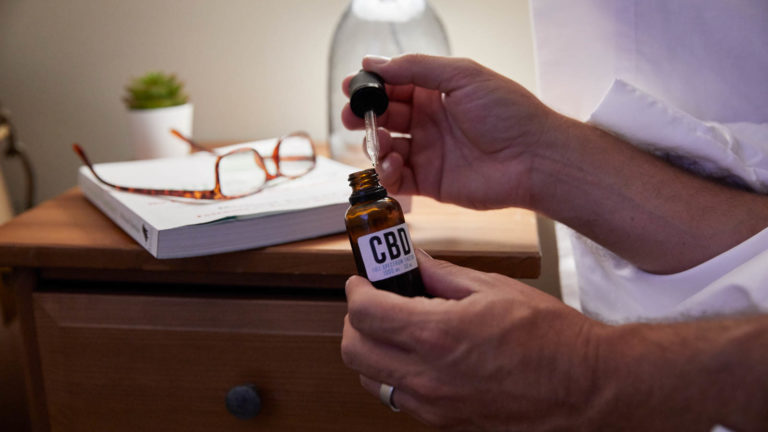People with autism spectrum disorder (ASD), a neurodevelopmental condition, commonly experience difficulties or a delay with language, social, or cognitive skills, though the extent to which they experience these difficulties varies. Each person with autism is unique, and many autistic individuals consider autism an integral element of their identity.
People living with autism sometimes exhibit irritability or aggressive behavior, and frequently experience other medical conditions such as eating disorders, sleeping disorders, autoimmune disorders, anxiety, or neuroinflammation at the same time. Twenty-five percent of individuals with treatment-resistant epilepsy also have autism.
Cannabidiol (CBD) oil has recently been cast into the limelight as an alternative method of treating specific symptoms associated with ASD. Anecdotal reports from parents of children with severe ASD have indicated some success with CBD oil. Is there clinical evidence to reinforce these reports?
 Photo by: Gina Coleman/Weedmaps
Photo by: Gina Coleman/WeedmapsImage lightbox

Research overview
There has been a recent surge in studies exploring the viability of CBD as a therapy for individuals diagnosed with ASD.
Researchers are just beginning to explore the connections between the endocannabinoid system (ECS) and autism. One 2018 study published in the journal “Molecular Autism” showed that patients with ASD have lower levels of anandamide, an endocannabinoid found within the body, than healthy individuals in a control group. Endocannabinoid system deficiencies or imbalances are also found in disorders linked to autism, such as seizures, anxiety, cognitive difficulties, or sleep disturbances.
There is reason to believe that CBD may help to alleviate some of the symptoms associated with these comorbidities. For example, CBD, in the form of FDA-approved prescription drug Epidiolex, has been shown to reduce the frequency of convulsive seizures in sufferers of Dravet's and Lennox-Gastaut syndromes and improve their quality of life. In an animal model of Dravet's, low doses of CBD also helped to improve social interaction deficits.
In addition to being anti-convulsive, CBD seems to display sedative, antipsychotic, anti-inflammatory, and neuroprotective qualities. These properties may alleviate some other conditions associated with autism, such as insomnia or psychosis.
The studies
A 2019 retrospective study published in the “Journal of Autism and Developmental Disorders” assessed the tolerability and efficacy of CBD-rich cannabis in 60 children with ASD and severe behavioral problems.
Following the treatment, 61% of the children exhibited improved or much-improved behavior, based on a ranking provided by caregivers. There were some noted side effects, however; 14% of the children experienced sleep disturbances, 9% became more irritable, and 9% experienced loss of appetite.
A much larger observational study published in 2019 by Israeli scientists in “Scientific Reports” also investigated the effects of cannabis oil on 188 children with ASD between 2015 and 2017. The treatment for the majority of patients was a CBD-rich cannabis oil containing 30% CBD and 1.5% THC. Patients with sleep disorders or aggressive behavior received an additional 3% THC.
 Photo by: Gina Coleman/Weedmaps
Photo by: Gina Coleman/WeedmapsImage lightbox

After six months, 60% of the patients were assessed; 90% of the patients' caregivers reported an improvement in restlessness, 89% saw an improvement in rage attacks, 88% reported an improvement in anxiety, 84% noticed an improvement in agitation, and 59% reported an improvement in sleep-related problems. Only five of the participants were reported as having depression at the beginning of the study but all of them showed improvement.
Good quality of life was reported by 31% of patients before the initiation of the treatment, while 67% reported good quality of life after the six-month assessment. Overall, 90% reported some level of improvement with 9% saying they saw no change. The most common side effect that was reported was restlessness, experienced by less than 7% of patients.
What the experts say
Dr. Jordan Tishler, President of the Association of Cannabis Specialists and CEO of InhaleMD, is wary of claims that CBD oil alone can provoke meaningful improvements in ASD patients.
“I have many ASD patients of various ages. It certainly would be nice if CBD alone were helpful, but I've found it not to be,” Tishler stated to Weedmaps News.
He does, however, believe that cannabis oil containing THC can offer benefits. “Cannabis oils can be very effective at low doses for control of anxiety, OCD [obsessive compulsive disorder]-like behaviors, and acting out in moderate to severely affected autistic people.”
 Photo by: Gina Coleman/Weedmaps
Photo by: Gina Coleman/WeedmapsImage lightbox

For Dr. Oludare Odumosu, Chief Scientific Officer at Ilera Healthcare and lead scientist on Hope, a new program that has developed cannabinoid medicine for autism cluster symptoms, CBD oil represents a promising treatment for people living with autism.
Odumosu points out, however, that many of the findings on CBD and autism are based on patient-reported outcomes and observational studies, rather than clinical trials.
“Until we do a real traditional, what they call a 'comparative head-to-head' study, the best we have are still the observational studies or patient outcomes research,” he explained. “Having said that, CBD is showing great promise. In some cases, by itself, but in most cases used with some amount of THC to address cluster symptoms associated with the spectrum.”
Odumosu emphasizes that parents of a child with autism who are contemplating CBD oil as a treatment should engage with a well-trained and trusted pediatrician, though he is convinced that it's effective.
“Do I personally believe that it provides a tolerable, safe, and effective option for relieving some of the symptoms associated with ASD? Yes, I do. My belief is rooted strongly in scientific knowledge and relevant anecdotes,” Odumosu said.
Bottom line
There is anecdotal and observational evidence that CBD appears to be a well-tolerated and safe option to relieve symptoms and conditions associated with autism such as depression, restlessness, and rage attacks.
Further clinical research is needed to better understand the effects of CBD on autistic individuals, and determine whether the presence of THC enhances its therapeutic potential.

